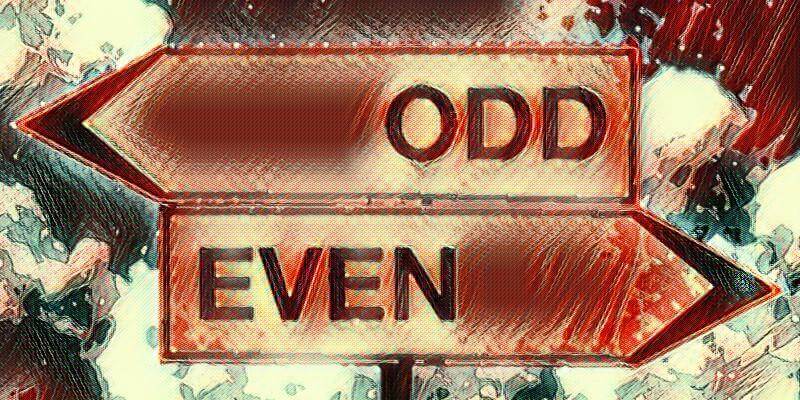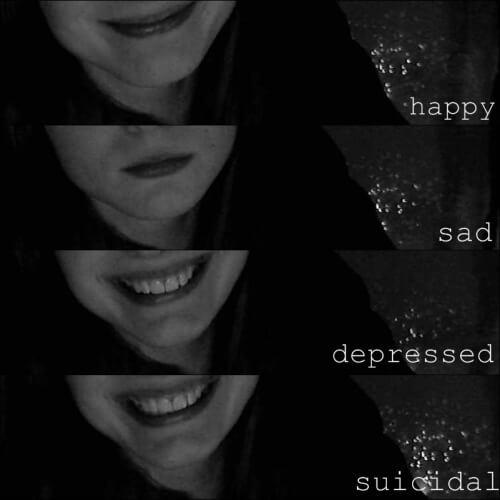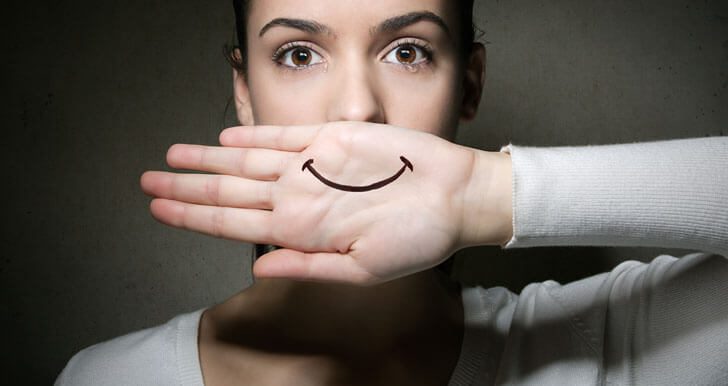Enakshi tells us about the latent or smiling depression and other mental health issues in this column. An exclusive for Different Truths.

Stereotypes are like blinkers. They are necessary to avoid distraction. But when the blinkers are on for a long period of time, the horse (read person) forgets that there exists a world beyond the straight line of sight (read line of thought). Hence, the beliefs, notions and ideas that are fed to our mind right from our birth, become more rigid and unchangeable. One such belief/stereotype is about depression and depressed people. We often assume that all depressed people would either be bed-ridden or non-functional. What we fail to realise is that often the happiest people are sad within. Just recently when I was reading a research article on depression, I came across the term ‘smiling depression’ and I couldn’t help but wonder about the kind of invisible boundaries that we all have created around our mind. These invisible boundaries, in the form of notions, ideas or influenced thoughts, often prevent the mind from accepting what lies before our eyes but believe what is mere hearsay.
We often assume that all depressed people would either be bed-ridden or non-functional. What we fail to realise is that often the happiest people are sad within. Just recently when I was reading a research article on depression, I came across the term ‘smiling depression’ and I couldn’t help but wonder about the kind of invisible boundaries that we all have created around our mind. These invisible boundaries, in the form of notions, ideas or influenced thoughts, often prevent the mind from accepting what lies before our eyes but believe what is mere hearsay.
According to the National Institute of Mental Health, approximately 10 per cent of the total population of the US suffers from depression, which is 10 times more than those suffering from Bipolar Disorder (1%) and Schizophrenia (1%). Even in India, around 7.5% of the Indian population suffers from some form of mental disorder (as quoted by The Diplomat, March 21, 2020). Knowing that so many people are facing this problem which is heavily stereotyped and looked down upon by our society, it becomes all the more difficult to spread awareness and share what one feels about this state of mind.
In a country like India, where the idea of perfection is defined by fair looks, sane mind and a six-figure salary, people find it even more embarrassing to discuss issues related to mental health. Even though the influencers and the distinguished people try their best to bring out the pathos of those who suffer, most of the population prefers to build a wall and remain ignorant. The inflexible mindset of the people of our society gave birth to the concept of ‘Smiling Depression’. According to this term, those who are the most surprised to realize that they are a victim of depression are usually the ones suffering from Smiling Depression. As the name suggests, Smiling Depression is a state of mind where one fails to identify the problem and continues to live the same way. Over time, the problem becomes more severe and that is when it finally comes into the notice.
Sushant Singh Rajput, Kushal Punjabi, Jiah Khan, V. G. Siddhartha (Chairman of CCD) and Jeon Mi-Seon (South Korean actress) are some of the well-known people who ended their life owing to depression. While their face value always helped them keep their concerns and worries under the wraps, their lifestyle, too, did not reveal their cards. Hence, their death came as a shock. But that did not deter the society from believing in the same stereotypes and encouraging a greater number of suicides by either taking the mental health-related issues lightly or treating the patient as an outcast.

Sushant Singh Rajput, Kushal Punjabi, Jiah Khan, V. G. Siddhartha (Chairman of CCD) and Jeon Mi-Seon (South Korean actress) are some of the well-known people who ended their life owing to depression. While their face value always helped them keep their concerns and worries under the wraps, their lifestyle, too, did not reveal their cards. Hence, their death came as a shock. But that did not deter the society from believing in the same stereotypes and encouraging a greater number of suicides by either taking the mental health-related issues lightly or treating the patient as an outcast. Whether it is young children committing suicide because of their low marks or the middle-aged people who give up their life owing to the financial pressure or the fear of being judged, somehow the invisible boundaries and the baseless thresholds are the reason why people fail in constructing a future for themselves. Humans have an emotional defence mechanism that helps them face unpleasant situations. Hence, the hallmark of smiling depression is sadness. The smile and the external pretence is just a defence mechanism to hide their true feelings.
Strangely, after reading this article, my perspective has changed. I have become more aware and I measure my words before they escape my mouth. The constant doubt of ‘What if…’ lingers in the back of my mind. I am gentle and more polite to everyone. In a way, I have become more humane compared to how I was before. Isn’t that a good thing? It surely is. Depression has been also defined as the state of unfocussed self-pity. When a person is trapped deep down in an unfathomable abyss, all he needs is those little drops of encouragement and positivity that can come together and help him escape the gulf! Sadly, that is the truth of modern society. In this rat race, we have forgotten to co-exist. All we believe in is competition over co-operation. We strive to beat others and rise to the top. Governed by god-complex, we do not leave any stone unturned in belittling others. Lack of sympathy and empathy in us further adds to the misery of those who suffer.
“Typically, people suffering from classic, severe depression might have suicidal thoughts, but not the energy to act on their feelings. However, those suffering from smiling depression have the energetic ability to plan and follow through.” (Psychology Today)
“Typically, people suffering from classic, severe depression might have suicidal thoughts, but not the energy to act on their feelings. However, those suffering from smiling depression have the energetic ability to plan and follow through.” (Psychology Today)
Therefore, it is quite evident how dangerous smiling depression can be. It is like a silent killer; one would not even get to know when the mind would start plotting against the will power. In the words of Mohsin Hamid, ‘Empathy is all about finding echoes of another person in yourself’. As true as they might sound, it is also important for us to try to become a part of Nature’s holy plan where heaven can exist on Earth and all the species can live in harmony.
Photo from the Internet







 By
By